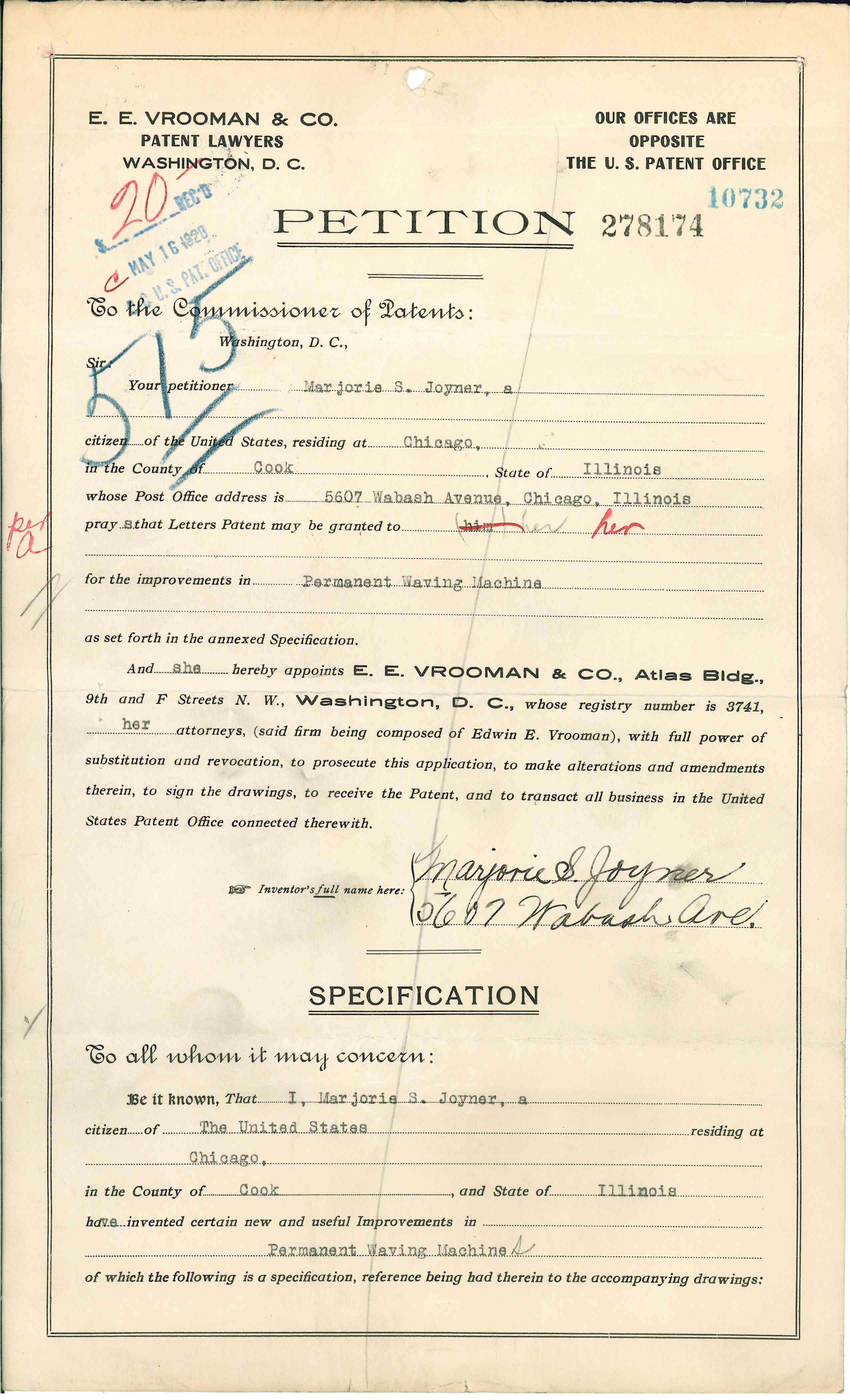Marjorie S. Joyner’s Petition for a Patent Application for a Permanent Wave Machine
5/16/1928
Add to Favorites:
Add all page(s) of this document to activity:

After studying and working in the beauty culture industry for some time, Marjorie Joyner met and quickly joined Madam C.J. Walker's Walker Manufacturing Company, the largest African American-owned company in the United States. Marjorie Joyner eventually served as national adviser for the beauty company that employed thousands of African American women across the country selling hair-care products.
While teaching students at the Walker Beauty School in Chicago and traveling as an adviser, Marjorie Joyner had the idea to create a new device. One evening as she was making a pot roast, Joyner thought there must be a way that allowed multiple rods to be applied to the hair at once, greatly reducing the time needed to create curls and waves for women’s hair.
After tinkering and experimenting with different setups—using her pot roast rods—Joyner came up with her one-of-a-kind permanent wave machine. Not realizing she should patent her unique device, Joyner used it for a few years before filing for one. She submitted a petition and drawings on May 16, 1928.
While teaching students at the Walker Beauty School in Chicago and traveling as an adviser, Marjorie Joyner had the idea to create a new device. One evening as she was making a pot roast, Joyner thought there must be a way that allowed multiple rods to be applied to the hair at once, greatly reducing the time needed to create curls and waves for women’s hair.
After tinkering and experimenting with different setups—using her pot roast rods—Joyner came up with her one-of-a-kind permanent wave machine. Not realizing she should patent her unique device, Joyner used it for a few years before filing for one. She submitted a petition and drawings on May 16, 1928.
This primary source comes from the Records of the Patent and Trademark Office.
National Archives Identifier: 167819674
Full Citation: Marjorie S. Joyner’s Petition for a Patent Application for a Permanent Wave Machine; 5/16/1928; 1,693,515; Patent Case Files, 1/1/1836 - 12/31/1978; Records of the Patent and Trademark Office, Record Group 241; National Archives at Kansas City, Kansas City, MO. [Online Version, https://docsteach.org/documents/document/marjorie-s-joyners-petition-permanent-wave-machine, May 1, 2024]Rights: Public Domain, Free of Known Copyright Restrictions. Learn more on our privacy and legal page.



